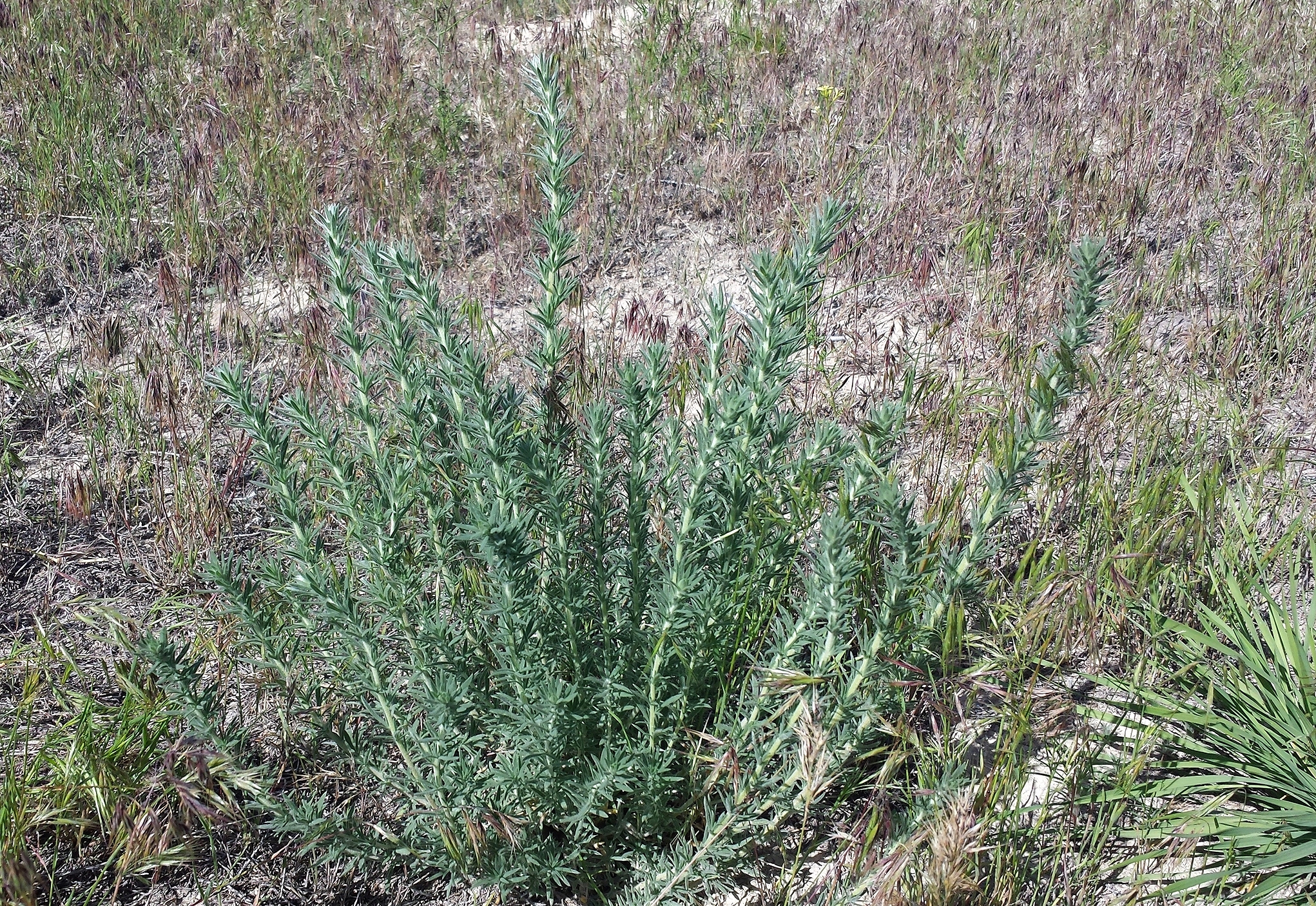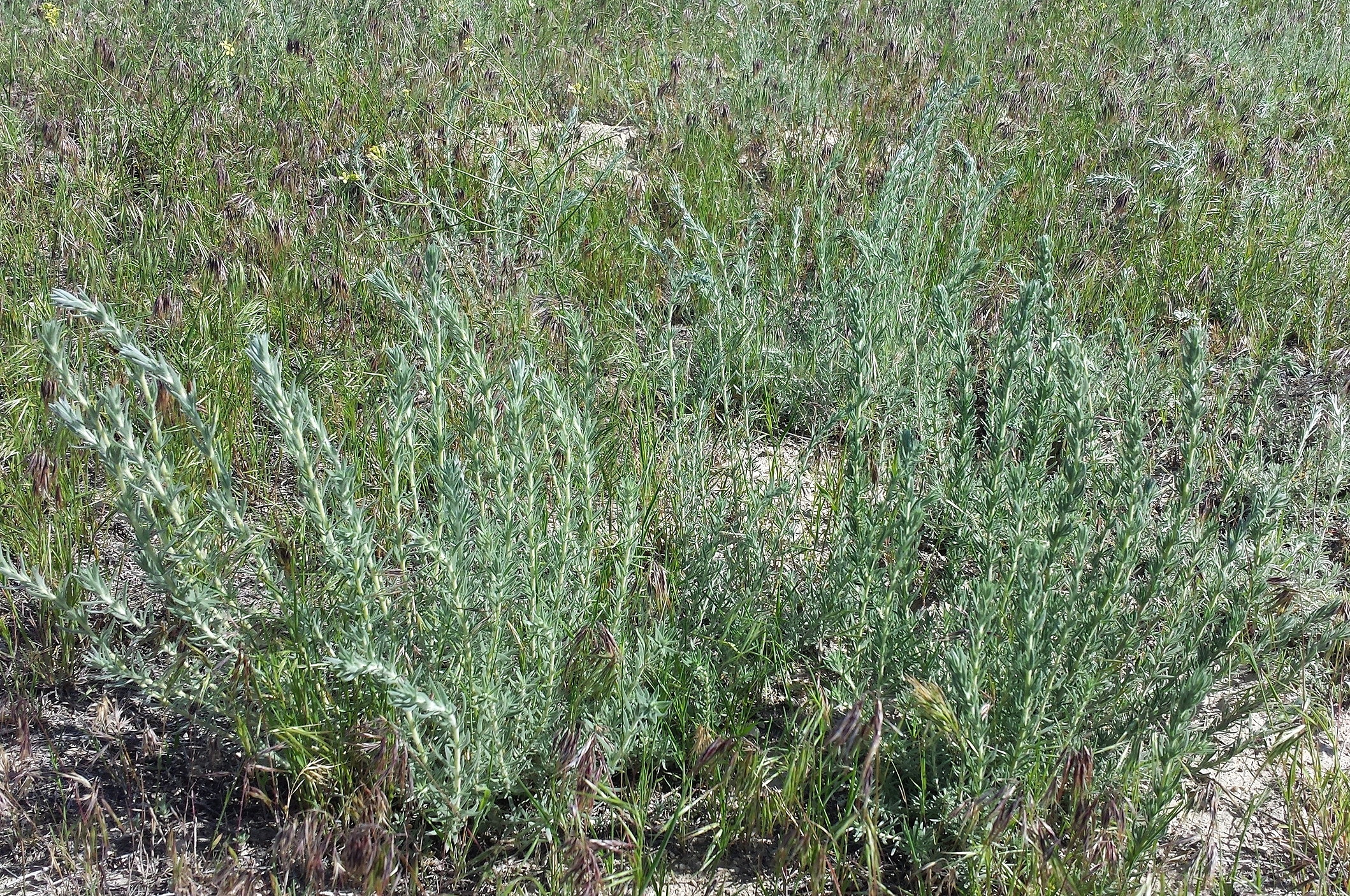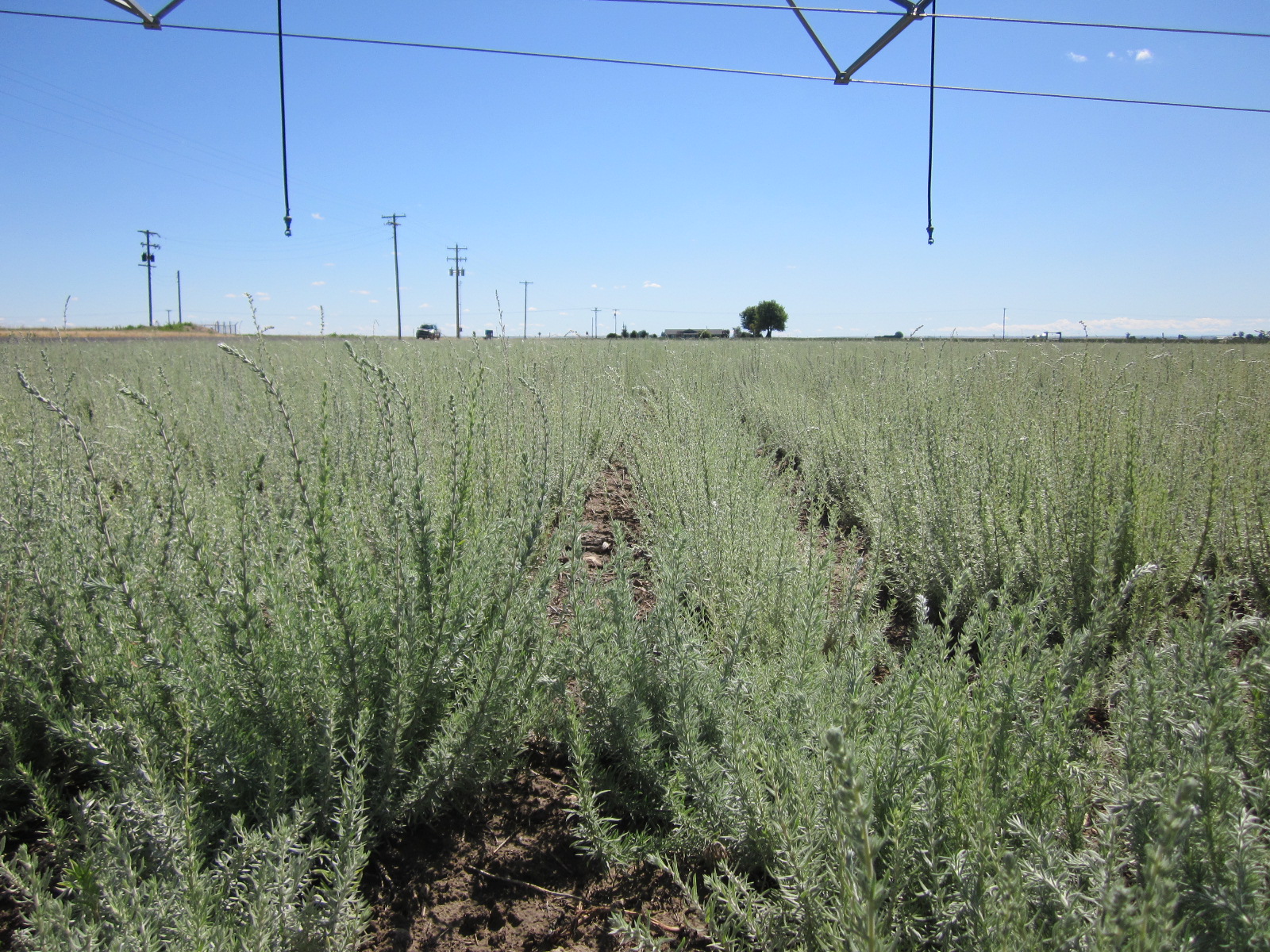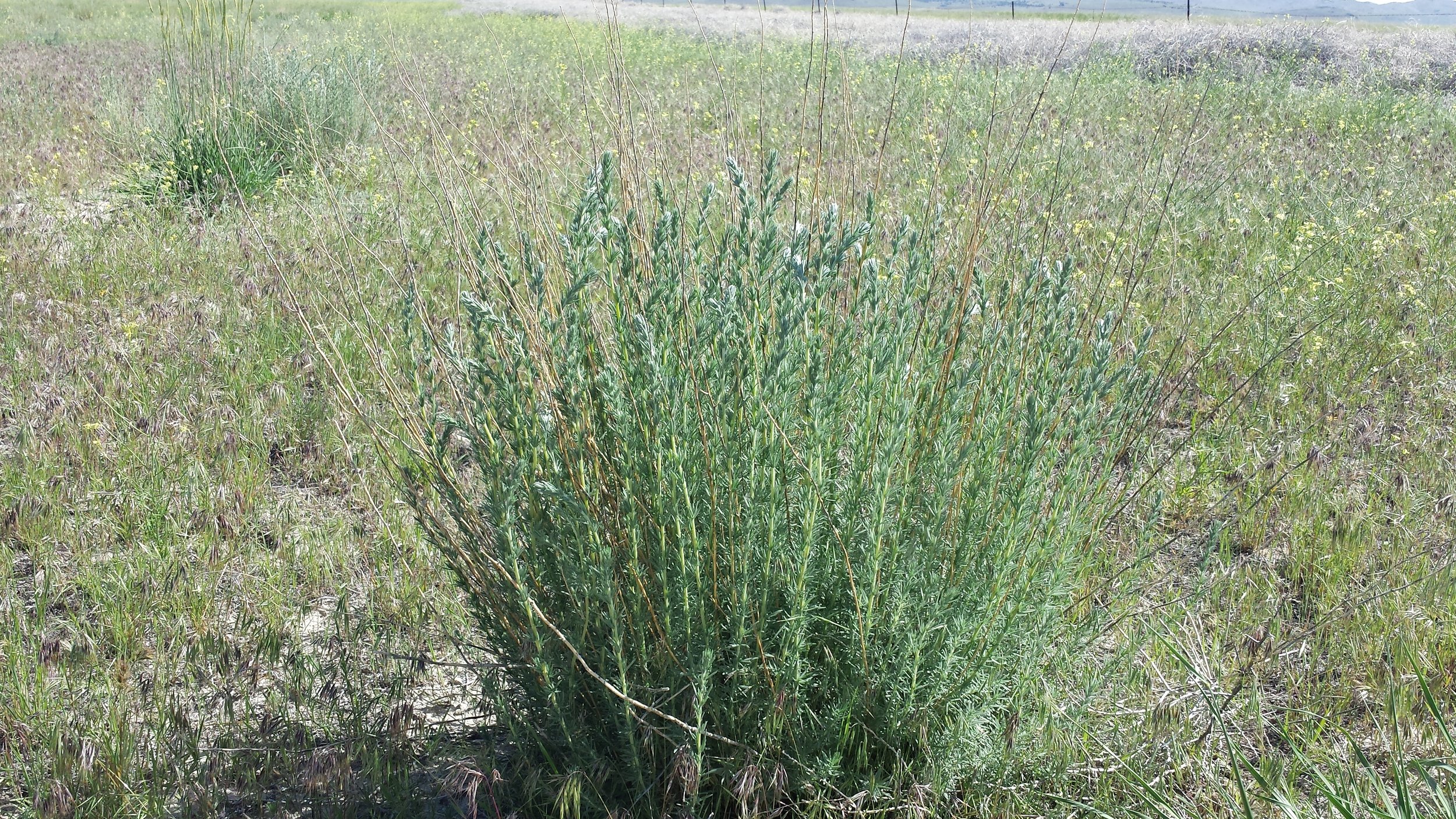Bassia prostrata (Forage kochia)
Formerly Kochia prostrata. Also known as Prostrate summer cypress. Evergreen subshrub 1-3 ft. tall with small inconspicuous flower clusters, blooming July to September. Adapted to a wide range of soils from sands and gravels to clays and silts, including shallow infertile and highly saline or sodic sites; up to 7,500 ft. elevation. Not to be confused with its weedy distant relative Kochia (B. scoparia). Extremely drought tolerant, remaining green throughout the wildfire season. Exceptional fire resistance, able to suppress or stop approaching wildfires and is used for greenstrip firebreaks in cheatgrass infested ranges on arid sites of the Intermountain West. Competes well with cheatgrass and other aggressive weeds such as halogeton, Russian thistle and medusahead. Provides highly palatable and nutritious year-round forage and cover for livestock, wildlife and upland game birds.
DISTRIBUTION / ADAPTATION
INFORMATION & ATTRIBUTES
Family: Chenopodiaceae
Duration: Perennial
Growth Habit: Subshrub
Native Status: Introduced
Growth Form: Multiple stem
Mature Height: 12-15 in.
Bloom Color:
Fruit/Seed Color:
Bloom Period: July-September
Annual Precipitation: 6-16 in.
Drought Tolerance: High
Shade Tolerance:
Elevation: 1,600-7,300 ft.
Fire Resistance: Medium
Fire Tolerance: Medium
Nitrogen fixation:
SOIL ADAPTATION
Coarse Texture: Yes
Medium Texture: Yes
Fine Texture: Yes
Salinity Tolerance: High
CaCO3 Tolerance: Medium
pH Range:
SEEDING NOTES
Seeds per Pound: 395,000
Seeding Rate: 2-3 PLS lbs/acre
Season: Fall/Winter
Days to Germination:
VARIETIES
Immigrant - From 12-15 in. tall, released for forage and soil erosion control on rangelands in the Intermountain West due to its longevity, forage production, forage quality, palatability and competitiveness. Limited use for winter grazing during periods of deep snow cover due to short stature. (ssp. virescens, Released 1984)
Snowstorm - Up to 30 in. tall, released for its improved stature and ability to extend above snow level, allowing it to be browsed during fall and winter and improve winter range in the Intermountain West. Also higher forage production, leafiness, protein content and digestibility than Immigrant. (ssp. grisea, Released 2012)





